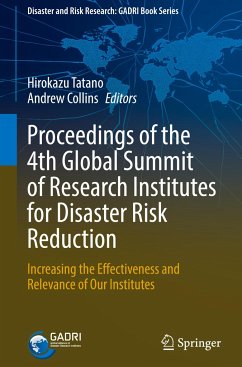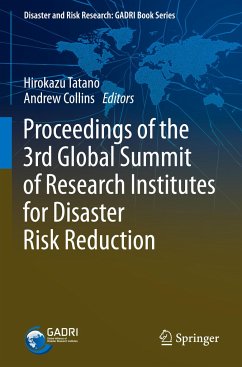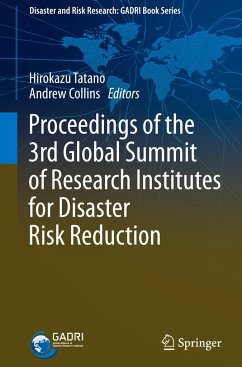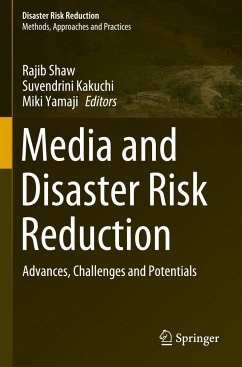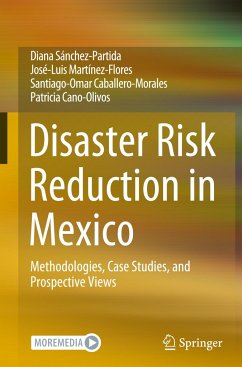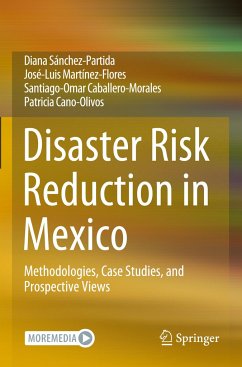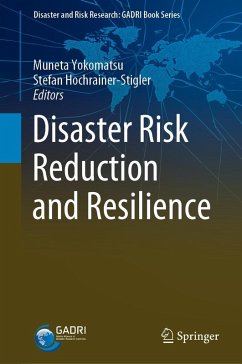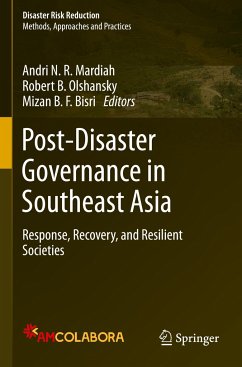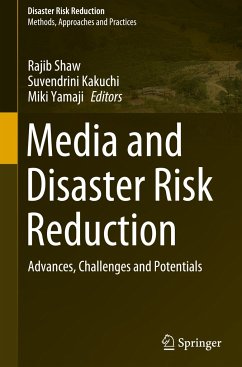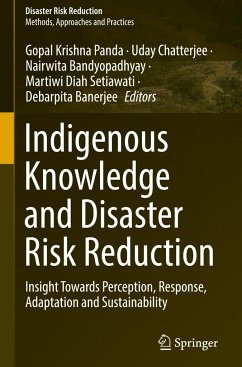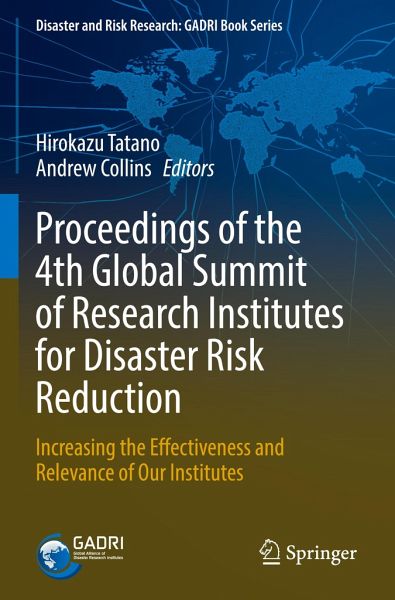
Proceedings of the 4th Global Summit of Research Institutes for Disaster Risk Reduction
Increasing the Effectiveness and Relevance of Our Institutes
Herausgegeben: Tatano, Hirokazu; Collins, Andrew
Versandkostenfrei!
Versandfertig in 6-10 Tagen
136,99 €
inkl. MwSt.

PAYBACK Punkte
68 °P sammeln!
This book presents selected papers by the keynote speakers and other presenters from various disciplines and includes their opinions and evaluations. The Fourth Global Summit of Research Institutes for Disaster Risk Reduction (4th GSRIDRR, 2019): Increasing the Effectiveness and Relevance of our Institutes, sponsored by the Global Alliance of Disaster Research Institutes (GADRI) and Kyoto University, was hosted by and held at the Disaster Prevention Research Institute (DPRI), Kyoto University, Uji Campus, Kyoto, Japan, 13-15 March 2019..The Global Summit series provided a platform for research...
This book presents selected papers by the keynote speakers and other presenters from various disciplines and includes their opinions and evaluations. The Fourth Global Summit of Research Institutes for Disaster Risk Reduction (4th GSRIDRR, 2019): Increasing the Effectiveness and Relevance of our Institutes, sponsored by the Global Alliance of Disaster Research Institutes (GADRI) and Kyoto University, was hosted by and held at the Disaster Prevention Research Institute (DPRI), Kyoto University, Uji Campus, Kyoto, Japan, 13-15 March 2019..
The Global Summit series provided a platform for researchers, practitioners, policy makers, and other stakeholders in both government and non-governmental institutes involved in disaster risk reduction and resilience to come together to discuss, share, and exchange ideas. It focuses specifically on contributing input to the contextualization and revision of the goals of the 2016 Science and Technology Roadmap toimplementation of the Priority Areas of the Sendai Framework for Disaster Risk Reduction Agenda 2015-2030, with input for GADRI to move forward in its contributions to the worldwide science community.
The conference comprised an impressive array of global stakeholders whose expertise and experience encompassed the management of knowledge and its application for governments and industries, with shared outcomes to bridge science and decision making. It enhanced a process to confront new scientific challenges in disaster risk reduction and disaster risk management.
The conference accomplished the following major goals, among others: (1) engagement in dialogue on issues related to disaster prevention and contributions to the Science and Technology Roadmap adopted to support the implementation of the Sendai Framework Agenda 2015-2030; (2) evaluation of current efforts on global and national involvement in the field of disaster prevention research in relation to the implementation of the Priority Areas of the Sendai Framework for Disaster Risk Reduction 2015-2030; (3) assessment of the status of current research knowledge and efforts, and research results at the institutional level in each country.
The Global Summit series provided a platform for researchers, practitioners, policy makers, and other stakeholders in both government and non-governmental institutes involved in disaster risk reduction and resilience to come together to discuss, share, and exchange ideas. It focuses specifically on contributing input to the contextualization and revision of the goals of the 2016 Science and Technology Roadmap toimplementation of the Priority Areas of the Sendai Framework for Disaster Risk Reduction Agenda 2015-2030, with input for GADRI to move forward in its contributions to the worldwide science community.
The conference comprised an impressive array of global stakeholders whose expertise and experience encompassed the management of knowledge and its application for governments and industries, with shared outcomes to bridge science and decision making. It enhanced a process to confront new scientific challenges in disaster risk reduction and disaster risk management.
The conference accomplished the following major goals, among others: (1) engagement in dialogue on issues related to disaster prevention and contributions to the Science and Technology Roadmap adopted to support the implementation of the Sendai Framework Agenda 2015-2030; (2) evaluation of current efforts on global and national involvement in the field of disaster prevention research in relation to the implementation of the Priority Areas of the Sendai Framework for Disaster Risk Reduction 2015-2030; (3) assessment of the status of current research knowledge and efforts, and research results at the institutional level in each country.





